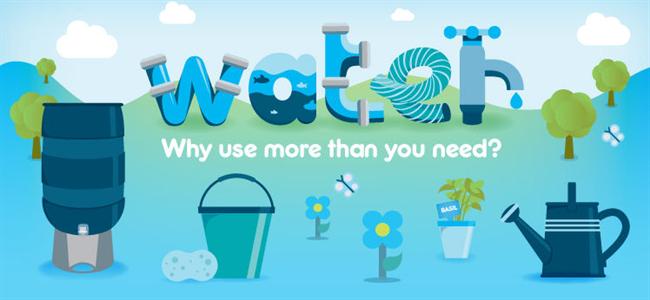Water Saving
WHY SAVE WATER?
• Kwa-Zulu Natal is now a water-scarce province.
• Low rainfall throughout the province and in catchment areas, a growing population and a growth in business and industry means there is less available water in the Umvoti Municipal Area.
• The level of Lake Merthley which is supplying Umvoti Residents is currently at an extremely low level.
• Unless we reduce our water use, The Lake resources will soon dry up.
HOW CAN I PLAY MY PART?
• You can play a part by being aware of your impact on water consumption and your responsibility to save it and by telling others about it.
• You can save water at home, at work, at school and anywhere you use water.
• Use the many tips to save water and try to find new ways to save it.
WHOSE RESPONSIBILITY IS TO CONSERVE WATER?
• Everybody uses water and it is everybody’s responsibility to use water wisely, sparingly and to save it wherever possible.
YOUR WATER METER:
• To ensure that you have no leaks, close all the taps on your property and then check that your water meter shows no activity.
• If you check your water meter on a regular basis, you can find out where you use the most water and how much you consume in a week or a month.
• Protect your water meter from theft and vandalism.
YOUR SWIMMING POOL:
• Collect rainwater in tanks and divert the collected water to your swimming pool.
• Use a pool blanket to reduce water evaporation during hot days.
• Recycle your backwash water to a tank, allow it to stand for a day and then use it to wash your car, in the toilet or water the garden.
IT STARTS WITH YOU
Saving water in your everyday life is easy and simple. All you need to do is make small changes and adopt a simple water-wise attitude to everything you do.
Here is a list of simple water saving tips:
SAVING WATER AT HOME
• Visually inspect taps for drips and repair defective taps. A dripping tap could waste up to 30 liters a day – that’s equivalent to 10 000 liters a year!
• Fit tap aerators and water-efficient shower roses. A water-efficient shower uses on average 7 liters per minute as opposed to the 12 – 15 liters per minute of traditional options.
• Shower rather than bath. The average bath uses in excess of 150 liters of water.
• Shorten the amount of time spent in the shower can save 22 Liters per person per day
• Check your meter reading regularly and scrutinize your rates bill for extreme changes in water consumption.
• Use water saving devices in toilet or install dual-flush systems.
• If possible, purchase a water-efficient dishwasher. They use on average 18 liters per wash, which is the same as a single basin volume. Alternatively hand wash dishes only once per day.
SAVE AT WORK
• Talk to colleagues and staff about your water saving initiatives.
• Include water savings policies and procedures in staff inductions.
• Encourage colleagues and staff to contribute their own water saving ideas.
• Discuss water efficiency at team meetings and provide regular reports on water use.
• Establish a baseline for water use and set achievable targets for saving water.
SAVE IN THE GARDEN
Save water in your garden by using these simple tips on a daily/weekly basis:
• Plant indigenous plants and flowers
• Hosepipes for outdoor watering must be fitted with a self-closing device.
• Use a bucket to water the garden if needed.
• Don’t water your garden on windy days or between 08:00am and 18:00pm.
• All swimming pools should be fitted with a cover, particularly in windy areas. It will keep your pool exposure to the sun minimum, reduce evaporation massively and consequently reduce the need to top-up frequently.
 Umvoti Municipality Your Place of Peace & Prosperity
Umvoti Municipality Your Place of Peace & Prosperity

